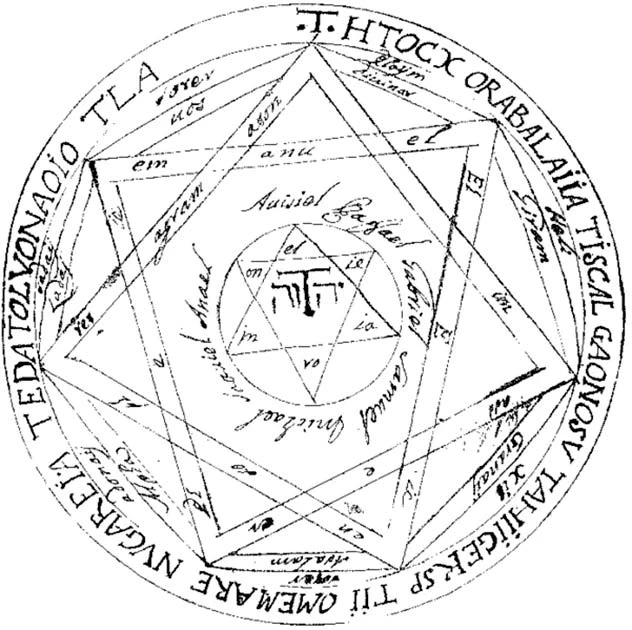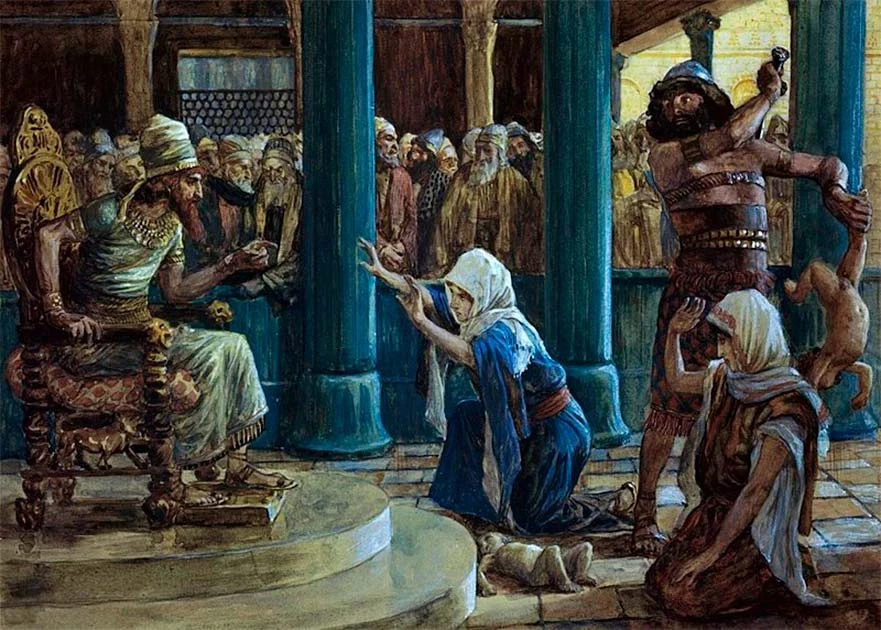Medieval grimoires are not particularly unusual. These books of spells were always special, generally held in high regard, and (we can be fairly sure) all of them didn’t work.
Most were roundly condemned by orthodox religion, with the Catholic Church preferring its own brand of magic: prayer, and rejecting competing views of the world as heresy. But one book, known as Liber Iuratus Honorii or the Sworn Book of Honorius, was different.
This one had magic spells and rituals in it, same as the others. But this one was Christian.
Christian Magicians
Clerical magicians with orthodox Christian beliefs compiled this book full of magical spells to control both spiritual and earthly beings to their will. Everyone who used this book was first obliged to swear nine oaths to maintain the secrets within.
As the title specifies, the Sworn Book of Honorius was therefore for students who had sworn secrecy before using any of the magic spells mentioned within it. There are only a few manuscripts of it that survived over time. This book has several magical teachings that are executed with particular spells. Among all of the teachings, one included a magical whistle for summoning the spirits.
There were a lot of other magical texts that are still being decoded and understood by modern experts. To date, there are few translations, but modern versions of the book do exist.
But as per the researchers, the Sworn Book of Honorius has some of the most detailed and oldest magic rituals ever. How did such pagan magicks come to be associated with Christianity?

The Sworn Book of Honorius is a grimoire from the medieval period, specifically one which is “oathbound”. People who cast the spells written in this book are bonded with an oath to maintain the secrecy of those spells. There is no specific date on when this book was written or compiled, but it mostly dates back to the High Middle Ages.
It is most likely to be a compilation of all “prevalent” magical knowledge collected into a single book by various magicians in the ancient era. The book comprises 93 chapters and covers many topics, with spells to deal with them. Some topics were like saving one’s soul from suffering after death or catching thieves.
Moreover, it also had a lot of instructions on how someone can conjure a demon and command it to work out other spells or magical deeds. Moreover, like any other grimoires, it has well-elaborated seals and operations that one can use upon proper understanding and execution.
So far, so earthly, but some of the spells in the book are considerably more heretical. One, for example, offers the caster knowledge of what exists in heaven. Another can be used to grant the caster the powers of an angel, and yet another used for controlling angels themselves.
- Practical Magic: The Summoning Spells of The Book of Abramelin
- History of Magic from Dark Art to Pop Entertainment
So how does this all square with Christianity? Well, there are two main things which set this book apart from many other grimoires. The first is that the book claims to a preservation of the magic of Solomon, great Hebrew king of the Bible.
Solomon is obviously an important biblical figure and favored of God. His magic must therefore be also derived from God, and such knowledge therefore must also be non-heretical, else you would need to recast Solomon as satanic.
This also ties into the second thing which makes the Sworn Book of Honorius different: the efficacy of the spells was driven by piety, and the belief in the divine. In other words, the spells only work if the caster truly believes in God, specifically the Christian God.
This is a neat way to bypass both the problems of this particular text, and the problems of spellbooks as a wider counterpoint to Christianity. Now Christians can cast spells, but only from this book, only if they believe in the Christian God, and only after they have been sworn to never reveal the contents of the book or the spells they have cast.
Neat, that.
Where Did It Come From?
The Sworn Book of Honorius is assumed to have been created by a group of clerical magicians. In this context “magicians” are simply the holders of a secret knowledge, and these happen to operate within the framework of the Christian church.
Many aspects of medieval society involved magic and its practical applications by practical users of magic, and some simple spells could be cast by anyone (perhaps an ominous foreshadowing of Protestant doctrine, if only the Catholics had the wit to see it).
But, the clerical magicians did essentially the same thing in privacy, to which the other members of the society do not have any access. Only they were considered powerful enough magicians and pious enough Christians, and only they had access to the book.
Happily, some copies of the texts survive. The spells within incorporate various rituals for altering the world for their benefit, in immediate and practical ways. The dangers of such practical magicks, and the risk to the world order should they fall into the wrong hands, is implied as the reason for the secrecy.
Honorius himself is said to be a magician, master of Thebes and son of Euclid, and the Sworn Book of Honorius was his compilation. He was instructed in his work with the divine aid of the angel Horohel. He was tasked to compile this book from the seven unnamed magical books that existed back then.
Upon creation, the magicians who shared their knowledge gathered to ensure its contents were protected. For that, they established a nine-oath series of secrecy for anyone who uses the magic spells written within the book. Once someone uses the book, he must swear to protect access to all the secrets hidden within the book.
- The Book of Shadows: Is There a Secret Witches’ Spellbook?
- The Soothsayer, the Sibylline Books and the Last King of Rome
Of course, this is just gumph designed to make the book appear ancient and mystical and mysterious and powerful and all that. In reality the spells come from multiple, traceable sources.
John of Morigny was a monk who studied magical texts known as Ars Notoria but later rejected it, claiming it contained a demonic entity. He then compiled his own, cleaner version of this magical knowledge and added it to a text known as the Liber Florum. These texts were collectively considered the source of the Sworn Book of Honorius.
So much for its provenance, what does it contain? The spells within the book represent a complete magical system for summoning and controlling divine spirits.

The spells loosely fall into the following groups: those that grant divine vision, those that allow communication with angels, those that grant control over earthly, aerial or infernal spirits, those that summon and command demons, and those that summon and command spirits.
Apart from these magics and more, the texts within this book also contained the attributed authorship of the magical spells. As was true of a lot of grimoires from the medieval age, authorship is traced back to Moses and Adam.
The book also offers useful suggestions for how to make the spells work for you, such as creating illusions and thunder, locating hidden treasures, receiving divine wisdom from celestial entities, that sort of thing. But, in reality, the texts only really offer two magic rituals.
And, within these two operations is what all of the magical spells are summed up. The primary operation is the ritual with which the reader of a book can attain the divine vision or vision of God. A clerical magician with a great sense of discipline, spiritual purity and physical dedication can take up the spell for obtaining this vision. One must have orthodox Christian beliefs.
The second important magical ritual is the construction of several magic circles, which acts as a means of evoking spirits. Thus, this is one of the clerical magicians’ most common and preferable magical practices. The duration of these magical operations is mentioned within the book, along with the step-by-step instructions.
So, this is a clear understanding of the Sworn Book of Honorius was compiled and used by magicians over time. Back in the ancient era, even university students were brought under religious beliefs and made to take oaths to use the book.
So it seems the Christian church had room for spells, so long as they operated within the framework of their church and so long as they emphasized the primacy of the Church. If the spell book said that, even summoning demons could be a Christian act.
Top Image: The Sworn Book of Honorius offered guidance on divine knowledge and on how to control angels and demons, all within a Christian framework. Source: Digitale Wanderlust / Adobe Stock.
By Bipin Dimri